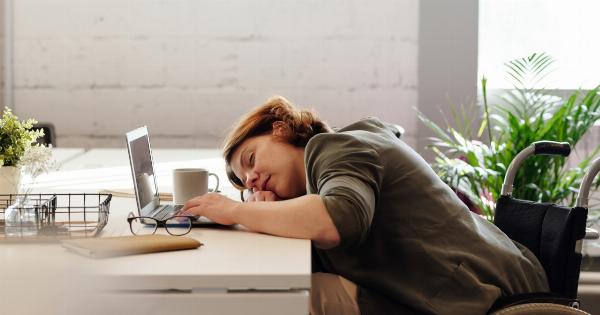Sleep is an essential aspect of our lives. It plays a crucial role in physical and mental health, and getting enough quality sleep is crucial. Your sleeping posture plays a vital role in the quality and quantity of your sleep.
There are three basic positions for sleeping: lying flat on your back, lying on your side, and sleeping on your stomach.
The Benefits of Sleeping on your Back
Sleeping on your back is considered the most recommended sleep position by many health experts. It is considered to be the most natural and comfortable position for sleeping. Furthermore, sleeping on your back has numerous benefits:.
It Eases Neck and Back Pain
Sleeping on your back can help reduce neck and back pain. This position helps in maintaining your spine’s natural alignment, reducing the pressure on joints, and easing pain or discomfort.
It Reduces Acid Reflux
Sleeping on your back can also reduce acid reflux symptoms. When you sleep on your stomach, gravity brings stomach acid to your esophagus, which may cause discomfort and injuries to your esophagus over time.
Moreover, sleeping on your back reduces the risk of developing esophageal cancer.
It Reduces Wrinkles
Sleeping on your back can also help reduce the appearance of facial wrinkles. When you sleep on your stomach or side, you may be pressing your face against a pillow, which can cause wrinkles around the eyes, mouth, and cheeks.
Sleeping on your back can naturally help avoid this.
It Reduces Snoring and Sleep Apnea
Sleeping on your back reduces the risk of snoring and sleep apnea. This position promotes breathing by keeping your airways open, thereby minimizing the likelihood of snoring.
The Benefits of Sleeping on Your Side
Side sleeping is a popular sleeping position, and it also has several benefits. Here are the benefits of sleeping on your side:.
It Helps with Snoring and sleep apnea
Sleeping on your side promotes better breathing, which reduces the likelihood of snoring and sleep apnea. Sleeping on your back, in contrast, can make breathing more difficult for individuals with these issues.
It Reduces Acid Reflux
Side sleeping can help reduce acid reflux symptoms. Sleeping on your left side is the best for preventing acid from flowing up from the stomach.
It Reduces Pressure on Joints
Sleeping on your side can reduce pressure on joints, making it a great position for those who suffer from joint pain or arthritis. Just ensure you have the appropriate support to avoid waking up with pain.
The Benefits of Sleeping on Your Stomach
Stomach sleeping is the least popular sleep position, but it is not without its benefits. Here are some of them:.
It Reduces Snoring
Stomach sleeping can help reduce snoring. Snoring usually occurs when the soft palate relaxes and partially blocks the airway. However, when you sleep on your stomach, gravity helps keep the airway open, reducing the likelihood of snoring.
It Helps with Sleep Apnea
Stomach sleeping can also help with Sleep Apnea. This sleep position helps in keeping the airways open, thereby reducing the severity of sleep apnea.
It Facilitates Digestion
Sleeping on your stomach helps facilitate digestion, especially after heavy meals. This position helps settle the food in your stomach naturally, reducing the risk of acid reflux and other digestive issues.
It Improves Breathing
Sleeping on your stomach can help improve breathing in some people, mainly if it is the most natural way they breathe when they sleep.
The Bottom Line
The best sleeping posture for you depends on your comfort, health status, and personal preference. Sleeping on your back is generally recommended by health experts. However, sleeping on your side or stomach can also have some benefits.
Whatever position you choose, make sure to maintain a neutral spine alignment and use a comfortable and supportive mattress and pillow.






























